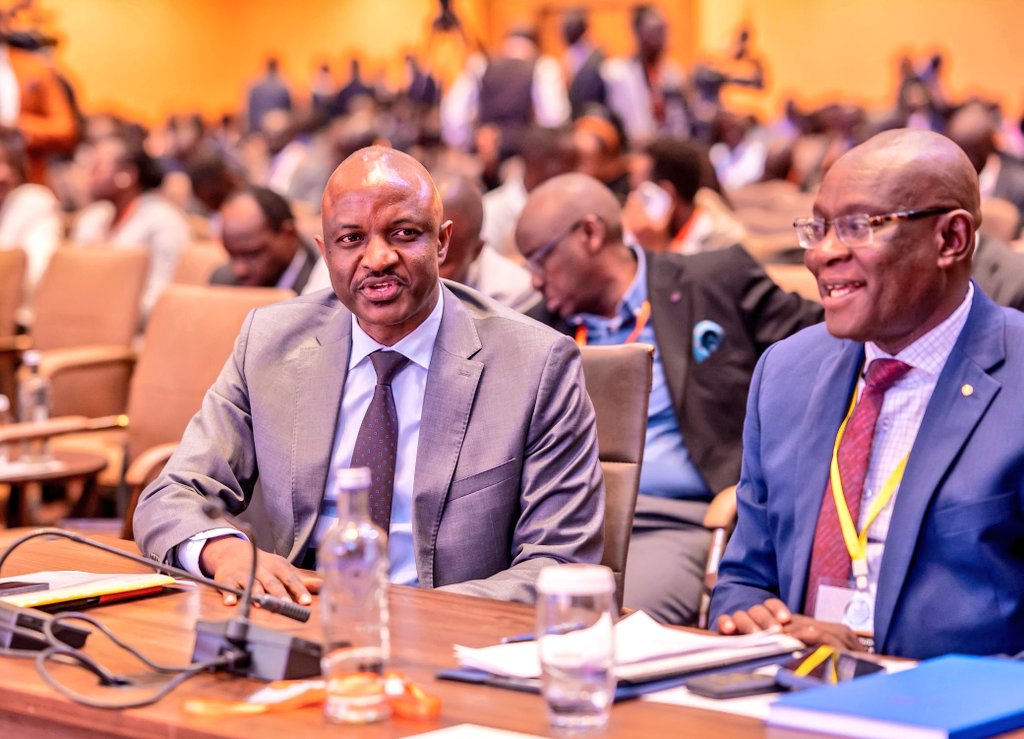PM Nabbanja tasks accounting officers on 2026/27 budget priorities
Prime Minister Robinah Nabbanja arriving at Speke Resort Munyonyo to attend the the opening of the National Budget Conference for the financial year 2026/27. (Courtesy photos)
_______________
Prime Minister Robinah Nabbanja has asked accounting officers, including ministers, to prioritise areas in their budgeting processes that align with the ATMS in the next financial year.
ATMS stands for Agro-Industrialisation, Tourism Development, Mineral-Based Industrial Development, and Science, Technology and Innovation, including ICT and the Creative Arts Industry.
She made the call on Thursday (September 11) while officiating at the opening of the National Budget Conference for the financial year 2026/27 at Speke Resort Munyonyo.
"As we start the planning and budgeting process for FY 2026/27, our task is to ensure we are all committed to the efforts of lifting the 33% of our population from the subsistence economy to the money economy,” she said.
She added that their efforts should leverage government wealth-creation programmes such as the Parish Development Model, Emyooga, Youth Venture Funds, GROW, INVITE, the Agriculture Credit Facility, the Small Business Recovery Fund, Uganda Development Bank, and the Microfinance Support Centre, among others.
Permanent secretary and Secretary to the Treasury, Ramathan Ggoobi (Left), said the meeting aimed not only to seek stakeholder views on the budget but also to foster collaboration.
According to her, the budget strategy aims to deepen the implementation of the anchor growth sectors, including agro-industrialisation, tourism development, mineral-based industrial development, science, technology and innovation (including ICT and the creative arts industry), and the enablers.
She also called for initiatives to boost domestic revenue collection to achieve national targets and minimise borrowing, both domestically and externally, which undermines Uganda’s development.
Government projections
On the same occasion, finance minister Matia Kasaija told participants that Uganda’s economy is projected to grow by 7.0% in FY 2025/26, and by at least 8% per year on average over the next five years.
He added that, with the onset of commercial production of oil and gas in 2026, the economy is projected to register double-digit growth rates.
"The budget strategy for FY 2026/27 prioritises investment in the first phase accelerator actions of the Tenfold Growth Strategy anchored on the four key growth areas underpinned by the goal of full monetisation and formalisation of the economy," Kasaija said.
He explained that the budget strategy for FY 2026/27 is anchored on specific objectives, which include: increasing value addition to agricultural and mineral raw materials, oil and gas, and tourism; increasing investment in science, technology and innovation; sustaining investment in enablers such as transport infrastructure, electricity, irrigation, industrial parks, education, health and security; enhancing revenue collection; and promoting regional integration and access to markets.
Stakeholder engagement
Permanent secretary and Secretary to the Treasury, Ramathan Ggoobi, said the meeting aimed not only to seek stakeholder views on the budget but also to foster collaboration.
“We are here to hear from you how best we could turn challenges into opportunities, and by extension, the opportunities into results – results such as startups, jobs, incomes and wealth, and better services," Ggoobi said.